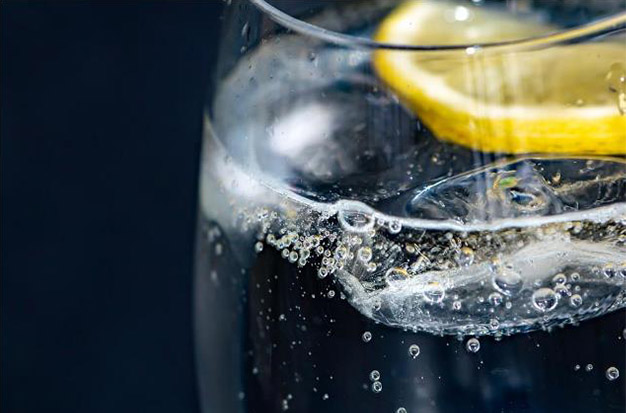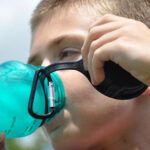It is essential to drink enough water each day to support all biological processes, including digestion, metabolism, getting rid of waste, maintaining a normal body temperature, and preserving the health of organs and tissues.
Our health depends on staying hydrated, yet there is significant disagreement over the ideal temperature for drinking water. Drinking cold water, according to some proponents, may not be good for you.
Is drinking cold water bad for you? In this article, we investigate if it is bad for people to drink cold water. We also discuss whether drinking warm or cold water is preferable, as well as any hazards and advantages of doing so.
What Qualifies as Cold Water?
Even if defining this can seem foolish, give it some thought. One individual may be frozen while another is burning up in a place that is comfortable for you in terms of temperature. We are here to provide you with a range of cold water temps, so that is why.
Dr. Weiner says that a pitcher of ice water from the fridge would be around 41 degrees Fahrenheit (5 degrees Celsius). Cold tap water would be around 60 F (15.55 C). Room temperature water comes in at around 78 F (25.55 C).
Is Drinking Cold Water Bad for You?
According to the Indian traditions of Ayurvedic medicine, cold water can cause an imbalance in the body and slow down the digestive process.
Ayurvedic practitioners believe that since the body’s core temperature is roughly 98.6°F, drinking cold water causes the body to have to work harder to raise this temperature
Cold water can cool “the fire,” or Agni, which powers all of the body’s functions and is vital to health in the Ayurvedic philosophy. Additionally, ayurvedic practitioners think that drinking warm or hot water facilitates digestion.
There isn’t much scientific evidence in Western medicine to support the idea that drinking cold water is detrimental to the body or digestion. Toxins can be removed from the body, digestion is aided, and constipation can be avoided by drinking plenty of water.
Six subjects who were dehydrated after light exercise were tested in a brief study from 2013Trusted Source to see what happened when they drank water at various temperatures in a hot and humid environment.
The individuals’ response to the temperature change in the water and how much water they drank were both altered, the researchers discovered. Because the individuals drank more water and didn’t perspire as much, the ideal water temperature in the study was 16°C (60.8°F), which is the temperature of cool tap water.
The researchers came to the conclusion that rehydrating dehydrated athletes may benefit from water at a temperature of 16°C.
Benefits of Drinking Cold Water
Drinking cold water can help you feel cooler inside, which is one of its key benefits. The following circumstances call for the body to be cooled down by drinking cold water:
- When you’re exercising: A fantastic drink after working out in cold water.
- When it’s extremely hot outside: In the sweltering summer months, cooling down in cold water helps prevent heat stroke.
- When you’re trying to lose weight: Water has been proven to boost metabolism. It helps to burn an extra 70 calories each day (which is about as much as you would burn if you walked for 15 minutes).
- When you’re trying to lose weight: Water has been proven to boost metabolism. It helps to burn an extra 70 calories each day (which is about as much as you would burn if you walked for 15 minutes).
- When you’re running a fever: Keeping hydrated and lowering the body temperature helps you get rid of foreign invaders in the body when you’re running a fever.
Risks of Drinking Cold Water
As your body contracts, shrinks and slows down in cold water, this has a negative impact on digestion. Your body needs to expend more energy to warm up the cold foods and drinks when you drink cold water. This slows down digestion considerably and increases your risk of experiencing indigestion, constipation, and other digestive problems.
As the body adjusts to the cold water, stomach and abdominal pains may also worsen. The abdominal region experiences an increase in pain as a result of the abdomen’s propensity to constrict and stiffen.
The Best Time to Drink Cold Water

The greatest time to drink cold water, according to experts, is when you’re trying to lower your body’s core temperature, such as when you’re exercising, when it’s hot outside, or when you have a fever. Cold water has a number of health benefits.
Cold Water VS. Warm Water
Both warm and cold water have benefits and drawbacks depending on the situation, but neither is necessarily better for the body. Since the advantages of hydration for the majority of healthy people are the same when drinking cold or warm water, a personal preference that is adequate to encourage proper daily water consumption is typically the biggest determinant.
Negative effects of hot or warm water. According to studies, drinking warm water discourages people from drinking enough water, which might result in unintentional dehydration. This is very risky when it’s hot outside or you’re exercising hard. Due to the preference for drinking hot water in many East Asian nations, this is partially a cultural issue.
Positive effects of warm or hot water. To prevent kidney stones, Charles Patrick Davis, MD, Ph.D., a clinical professor at the University of Texas Health Science Center, suggests drinking warm water with lemon. Other medical experts endorse it as beneficial for treating achalasia and claim that it may aid in digestion, circulation, and the elimination of body toxins.
As you can see, drinking cold or warm water has advantages and disadvantages. Most of the time, your body will lead you to the optimum choice for your current hydration needs. Just remember that staying hydrated is crucial at all times, regardless of the temperature of the water you consume.
In the end, it really comes down to personal preference.
FAQ:
1. Can You Lose Weight by Drinking Cold Water?
It is true that drinking cold water aids in weight loss since it boosts metabolism, makes you feel fuller, and enhances exercise performance by lowering body temperature and reducing perspiration.
When addressing the question, “Does drinking cold water burn calories?,” we can use a 2003 study conducted at Humboldt-Universität in Berlin that concluded that consuming water at a lower temperature resulted in higher energy expenditure and better metabolism rate. The reason for this is probably that the body had to do more effort to heat the water to body temperature, boosting calorie expenditure. The amount of calories burned is uncertain; estimates range from just eight calories per glass of cold water (i.e., almost no impact on weight loss), up to a sufficient effect to lose as much as 1.2 kg per year.
2. Does Drinking Cold Water Lower Blood Pressure?
The answer is no, sipping cold water won’t lower your blood pressure. Although there is little research on the impact of cold water on blood pressure, studies have shown that it raises blood pressure by tightening blood vessels.
3. Who Must Drink More Cold Water?
Athletes, obese children, MS patients, and hypotension (low blood pressure) patients are among those who should drink cold water. Or any healthy individual who simply appreciates a cold drink of refreshment.
4. Should Pet Drink Cold Water?
Animals should drink cold water since both dogs and cats love it, which helps to ensure they stay hydrated.


